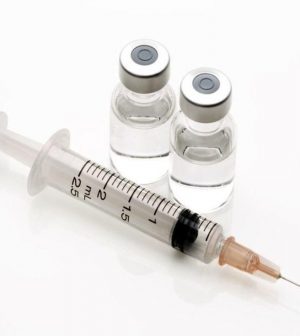- Recognizing the Signs of Hypothyroidism
- 10 Strategies to Overcome Insomnia
- Could Artificial Sweeteners Be Aging the Brain Faster?
- Techniques for Soothing Your Nervous System
- Does the Water in Your House Smell Funny? Here’s Why
- Can a Daily Dose of Apple Cider Vinegar Actually Aid Weight Loss?
- 6 Health Beverages That Can Actually Spike Your Blood Sugar
- Treatment Options for Social Anxiety Disorder
- Understanding the Connection Between Anxiety and Depression
- How Daily Prunes Can Influence Cholesterol and Inflammation
Real-World Study Shows Power of Pfizer, Moderna Vaccines to Prevent COVID

A real-world study shows that even when folks who get the Pfizer and Moderna COVID-19 vaccines do have ‘breakthrough’ infections, those illnesses are mild.
The study, from researchers at the U.S. Centers for Disease Control and Prevention, is among the first to show that people who get COVID-19 despite being fully or partially vaccinated are less likely to have serious illness or to infect others.
“COVID-19 vaccines are a critical tool in overcoming this pandemic,” CDC Director Dr. Rochelle Walensky said in an agency news release.
“Findings from the extended timeframe of this study add to accumulating evidence that mRNA COVID-19 vaccines are effective and should prevent most infections — but that fully vaccinated people who still get COVID-19 are likely to have milder, shorter illness and appear to be less likely to spread the virus to others,” Walensky said. “These benefits are another important reason to get vaccinated.”
The new findings were culled from four weeks of additional data gathered in a CDC study of U.S. health care workers, first responders, frontline workers and other essential workers. All of these people have a higher risk of exposure to SARS-CoV-2, the virus that causes COVID-19.
The analysis included nearly 4,000 participants who completed weekly SARS-CoV-2 testing for 17 weeks (Dec. 13, 2020 to April 10, 2021) in eight locations across the United States.
The risk of symptomatic and asymptomatic infection was reduced by 81% after partial vaccination and by 91% after full vaccination, the study found.
The findings also showed that among people who became infected, those who were partially or fully vaccinated were more likely to have milder and shorter illness than those who weren’t vaccinated.
For example, fully or partially vaccinated people who developed COVID-19 averaged six fewer days sick and two fewer days sick in bed, and they were about 60% less likely to develop symptoms like fever or chills.
Another finding was that vaccinated people who develop COVID-19 might be less likely to infect others. Fully or partially vaccinated people had 40% less detectable virus in their nose, and the virus was detected for six fewer days compared to those who were unvaccinated when infected.
People who were partially or fully vaccinated were 66% less likely to test positive for SARS-CoV-2 infection for more than one week compared to those who were unvaccinated, the researchers said.
The CDC recommends that people get fully vaccinated against COVID-19 as soon as they can. Everyone aged 12 and older in the United States is eligible for the shots.
More information
The U.S. Centers for Disease Control and Prevention has more on COVID-19 vaccines.
SOURCE: U.S. Centers for Disease Control and Prevention, news release, June 7, 2021
Source: HealthDay
Copyright © 2026 HealthDay. All rights reserved.










